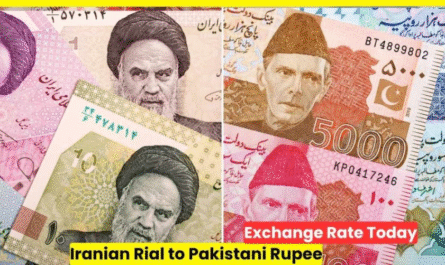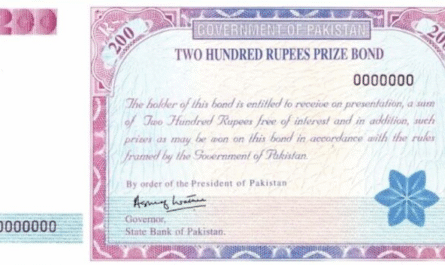The Public Accounts Committee (PAC) has raised serious concerns over the Oil and Gas Regulatory Authority (OGRA) after revelations that the country suffered a massive Rs. 103 billion loss due to delays in determining liquefied natural gas (LNG) pricing. The issue has reignited debates about governance, accountability, and the urgent need for efficiency in Pakistan’s energy sector.
The staggering loss, revealed during a PAC session, highlights how procedural inefficiencies and regulatory delays continue to cost the national economy heavily at a time when Pakistan is already grappling with high inflation, energy shortages, and foreign exchange constraints.
The Issue at Hand
At the center of the controversy lies OGRA’s delay in finalizing the Weighted Average Cost of Gas (WACOG) and LNG pricing for local consumers. According to PAC members, these delays resulted in a financial shortfall of Rs. 103 billion, which ultimately had to be absorbed by the government and, indirectly, the people of Pakistan.
LNG imports are critical for meeting Pakistan’s energy needs, especially for the power and industrial sectors. However, pricing delays often create gaps between the actual import cost and the billed consumer price. When regulators fail to act on time, the losses pile up, affecting public finances and energy sustainability.
PAC’s Strong Reaction
The PAC, which functions as a parliamentary watchdog on financial accountability, expressed strong disapproval of OGRA’s handling of LNG pricing. Members accused the authority of negligence, inefficiency, and failing to protect national interests.
The committee demanded that responsible officials be held accountable and corrective measures be implemented to prevent such costly mistakes in the future. PAC Chairman Noor Alam Khan reportedly criticized OGRA for lacking foresight and discipline in a sector as vital as energy, where delays can trigger ripple effects across the economy.
Energy Sector Struggles
This controversy comes against the backdrop of Pakistan’s ongoing energy crisis. The country faces:
- High electricity tariffs due to dependence on imported fuels.
- Gas shortages that disrupt industries and household supply.
- Circular debt in the power sector, which has crossed alarming levels.
- Rising pressure on foreign exchange reserves because of costly fuel imports.
In such a fragile environment, any inefficiency in LNG pricing directly worsens the crisis. The Rs. 103 billion loss could have been used to subsidize electricity, reduce circular debt, or improve energy infrastructure. Instead, it has added to the government’s financial burden.
OGRA’s Defense
While PAC members were quick to slam OGRA, the regulator attempted to justify its position. Officials argued that LNG pricing is a complex process, tied to international benchmarks, currency fluctuations, and supply chain uncertainties. They claimed that delays were partly due to bureaucratic hurdles and inter-agency coordination issues, rather than deliberate negligence.
However, critics argue that these justifications are insufficient. Regulatory bodies like OGRA are mandated to anticipate challenges and ensure timely decision-making. Failing to do so not only reflects poorly on the institution but also undermines public trust.
Broader Implications
The PAC’s criticism of OGRA is not just about one financial loss; it reflects a larger pattern of inefficiency in Pakistan’s energy governance. Similar issues have plagued the sector for years, including:
- Delayed approvals for energy projects.
- Opaque procurement processes.
- Poor coordination between ministries and regulators.
- Short-term fixes instead of long-term planning.
Such inefficiencies erode investor confidence and discourage foreign participation in Pakistan’s energy market. At a time when the country desperately needs investment in renewable energy, storage, and infrastructure, regulatory mishaps only push potential partners away.
Call for Reforms
The PAC session has reignited calls for structural reforms in the energy sector. Experts emphasize the need for:
- Improved Accountability: Regulatory authorities must be held answerable for financial losses, with penalties for negligence.
- Streamlined Decision-Making: Bureaucratic red tape should be reduced to allow quicker pricing adjustments and approvals.
- Digital Monitoring Systems: Use of digital platforms can help track LNG pricing, supply, and demand in real-time to avoid costly delays.
- Long-Term Energy Strategy: Pakistan must reduce its reliance on imported LNG by investing in domestic gas exploration and renewable alternatives.
- Inter-Agency Coordination: Energy governance requires collaboration among OGRA, the Ministry of Energy, and private stakeholders.
Public Impact
The Rs. 103 billion loss ultimately trickles down to the average Pakistani citizen. Higher tariffs, unreliable gas supply, and increased government borrowing all translate into inflationary pressures. Households already struggling with rising food and utility bills are indirectly paying the price for regulatory inefficiencies.
For industries, inconsistent gas pricing adds uncertainty to production costs, reducing competitiveness in local and global markets. Sectors such as textiles, fertilizers, and manufacturing are particularly vulnerable, as they rely heavily on natural gas and LNG.
Conclusion
The PAC’s rebuke of OGRA over the Rs. 103 billion LNG pricing delay is a stark reminder of the urgent need for accountability and efficiency in Pakistan’s energy sector. In a country already facing economic challenges, such massive losses are simply unaffordable.
While OGRA may cite complexities in pricing mechanisms, the fact remains that regulatory delays cost the nation dearly. Moving forward, Pakistan must prioritize energy sector reforms, ensure transparent governance, and adopt modern monitoring tools to avoid repeating such costly mistakes.



